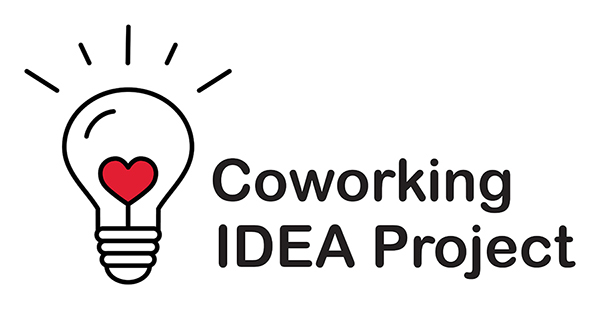Choose to Challenge Gender Inequality in Coworking
March’s IDEA Challenge is facilitated by Women Who Cowork.
The IDEA Project is a global initiative aimed at developing Inclusivity, Diversity, Equity and Accessibility (IDEA) within coworking and collaborative spaces. Each month, we will host a challenge that assists you in broadening your understanding of IDEA, whilst giving clear actions for you to take to develop IDEA within your space.
Challenge #2 – Choose to Challenge Gender Inequality in Coworking
In partnership with The Coworking IDEA Project and in honor of International Women’s Day on March 8, 2021 and US Women’s History Month, Women Who Cowork is inviting members of the global coworking movement to #ChooseToChallenge gender inequality.
According to the International Women’s Day website, they have chosen the theme of #ChooseToChallenge for 2021 because, “A challenged world is an alert world. Individually, we’re all responsible for our own thoughts and actions – all day, every day. We can all choose to challenge and call out gender bias and inequality. We can all choose to seek out and celebrate women’s achievements. Collectively, we can all help create an inclusive world. From challenge comes change, so let’s all choose to challenge.”
Women Who Cowork accepts this challenge and invites you to join us. For the month of March we ask that you:
#ChooseToChallenge gender inequality in coworking and shared workspaces.
At WWCO, we believe that the word ‘equity’ is dual-purpose. Related to gender and the workplace, equity sets the stage for equality, as it refers to the fairness in treatment of all people regardless of sex or gender identity and/or expression. If equality is the end goal, equity is the means to get there.
As white, heterosexual, cisgender women, we also understand that gender inequality is experienced differently in our lives than in the lived experience of a Black, Indigenous, Woman of Color and gender diverse person. Therefore, we take a wider gender lens to consider all gender identities through the intersectionality of identities, and access to resources and agency.
When we apply a gender lens, we are adopting a perspective that pays particular attention to how gender differences and relations are relevant for our organizations. Using a gender lens to analyze power structures and roles within a specific context can provide important insights into whether an organization supports or exacerbates imbalances in gender-related power.
Take this Coworking IDEA Challenge to help you apply a gender lens to your coworking organization and learn whether your organization is gender unintentional, gender intentional or gender transformative.
We’re asking the broader questions:
“How do all gender identities and/or expressions experience your coworking space?” and “Are any gender-based policies limiting access to resources or agency?”
The self-assessment will only take a few minutes of your time, with 15 questions, inviting you to apply a gender lens to 4 main areas: People, Space, Communication/Tools and Leadership/Management.
Our intention with the challenge is to raise awareness around gender equity and we encourage you to approach the self-assessment with an open and curious mind. This isn’t about being perfect, it is about recognizing how we can grow and become more gender intentional and transformative.
After everyone has completed the self-assessment, we invite you to share your experiences at the Coworking IDEA Challenge Discussion on March 31. Let’s learn together and become an industry known for its’ gender parity!
For the purpose of clarity of terms, we are adopting the following Gender Equality Lexicon, found in the Gender Equality Toolbox created by the Bill & Melinda Gates Foundation.
Gender Lens is a perspective that pays particular attention to how gender differences and relations are relevant for investments and projects. Understanding a context through a gender lens can lead to better development interventions by revealing opportunities and helping to mitigate risks.
Gender Equity is fairness in treatment of all people regardless of sex or gender identity and/or expression.
Gender Equality is the state of being equal in status, rights and opportunities, and of being valued equally, regardless of sex or gender identity and/or expression.
Gender Identity and/or Expression A person’s own sense of being male, female, or another identity beyond this binary, and how they choose to appear.
Intersectionality A perspective that acknowledges the concrete experiences of inequality that result from the interaction of gender with other social markers of difference.
These markers include but are not limited to age, race, class, caste, religion, ability, sexual orientation, gender identity and expression, and sex characteristics. When these markers interact with gender, compounded forms of discrimination emerge that amplify people’s individual constraints and opportunities.
March 31st 2021
9:00 AM Pacific | 12:00 PM Eastern
5:00 PM UK | 6:00 PM CET


